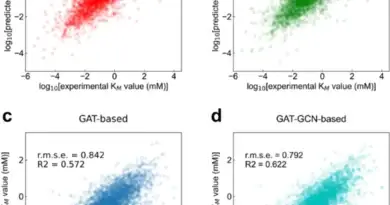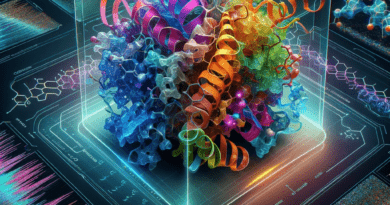The PAZy Database: A New Ally Against Plastic Pollution

A collaborative research effort between the University of Stuttgart and the University of Hamburg in Germany has led to significant advancements in addressing plastic pollution through enzymatic degradation. Published in Proteins in 2022, the study involves eight researchers, including Patrick C. F. Buchholz and Jürgen Pleiss from Stuttgart, and Golo Feuerriegel, Hongli Zhang, Pablo Perez-Garcia, Lena-Luisa Nover, Jennifer Chow, and Wolfgang R. Streit from Hamburg. Their work introduces the PAZy (Plastics-active enzymes database), a comprehensive resource categorizing enzymes capable of breaking down various plastics.
Enzymatic Breakdown of Plastics
Plastic pollution is a critical global issue, with plastics persisting in the environment for hundreds of years and causing significant harm to ecosystems. Traditional recycling efforts, while beneficial, are insufficient to tackle the growing problem. The researchers focus on hydrolytic enzymes, specialized proteins that can attack and degrade plastics into smaller, less harmful molecules. These enzymes offer a promising solution for reducing plastic waste and mitigating environmental impact.
Introducing PAZy
The PAZy database is a significant outcome of this research. It organizes known plastic-degrading enzymes, providing detailed information that is crucial for further scientific exploration:
- Enzyme Sources: Information about the origin of each enzyme, including the microorganisms that produce them.
- Target Plastics: The specific types of plastics each enzyme can degrade.
- Efficiency Metrics: Data on how effective each enzyme is at breaking down plastics.
As of now, PAZy catalogs 218 biochemically characterized wild-type unique enzymes, making it an invaluable resource for scientists working on enzymatic plastic degradation.
Impact on Waste Management Strategies
Understanding and utilizing these enzymes can lead to improved waste management strategies by:
- Reducing Plastic Waste: Enzymes can significantly decrease the amount of plastic accumulating in landfills and oceans.
- Preventing Future Pollution: Enzymatic degradation offers a proactive approach to managing plastic waste before it becomes an environmental hazard.
- Versatile Applications: Enzymes can be integrated into recycling plants, wastewater treatment facilities, and local waste management systems to provide greener solutions.
Challenges and Future Directions
Despite the promising potential, several challenges need to be addressed:
- Diversity of Plastics: Not all plastics are equally susceptible to enzymatic breakdown, and some tougher plastics require more robust enzymes.
- Cost-Effectiveness: Developing cost-effective methods for large-scale enzyme production and application is essential for practical implementation.
- Enzyme Optimization: Ongoing research is needed to discover new enzymes and enhance the activity of existing ones against a broader range of plastics.
The creation of the PAZy database lays the groundwork for addressing these challenges by facilitating collaboration and knowledge sharing among researchers worldwide.
This study sheds light on an innovative approach to combating plastic pollution using hydrolytic enzymes. The PAZy database serves as a valuable tool for researchers, aiding in the discovery and optimization of enzymes capable of breaking down plastics. While obstacles remain, the potential impact of these enzymes on creating a more sustainable and less polluted world is significant. The research underscores the importance of scientific innovation and collaboration in solving pressing environmental issues.
References
Keywords
- Plastic Pollution, Hydrolytic Enzymes, PAZy Database, Enzymatic Degradation, Environmental Biotechnology, Waste Management, Sustainable Solutions, Microbial Enzymes, Plastic Recycling, Environmental Innovation
Disclaimer: This article is intended for informational purposes and reflects current research findings. For more detailed information, please refer to the original study or consult professionals in the field.



